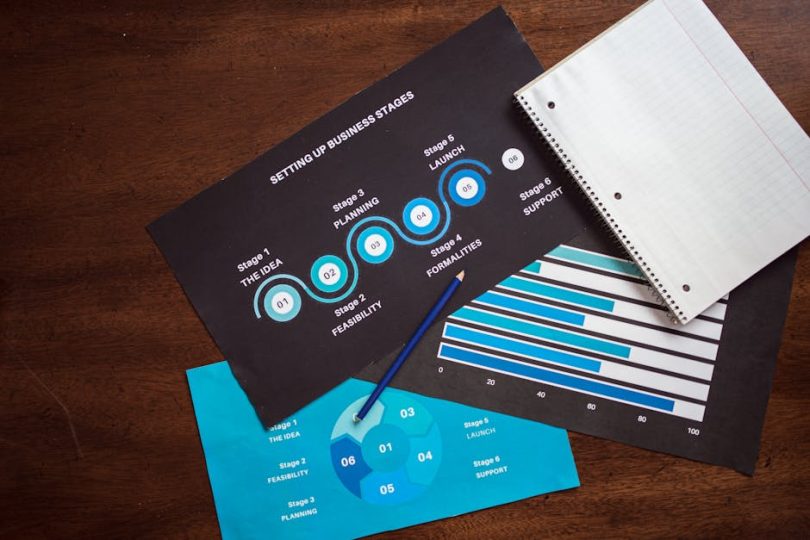Achieving Financial Independence: Steps to Take
Financial independence is a goal that many aspire to achieve, but few know the specific steps required to get there. It means having enough income to cover your living expenses without having to rely on traditional employment. Imagine waking up every day with the freedom to pursue your passions and interests without worrying about money. Sounds amazing, right? In this blog, we will explore actionable steps that can help you on your journey to financial independence.
This post contains Amazon affiliate links, meaning I may earn a small commission if you purchase through my links, at no extra cost to you. Note: We aim to provide accurate product links, but some may occasionally expire or become unavailable. If this happens, please search directly on Amazon for the product or a suitable alternative.
Understanding Financial Independence
Before diving into the steps, it’s essential to understand what financial independence truly means. Financial independence is not just about having a lot of money; it’s about having enough assets to generate income that covers your expenses. This state allows you to have the freedom to make choices about how you live your life without being constrained by financial pressures.
Key Statistics
According to a 2020 survey by Fidelity, only 29% of Americans feel very confident about their financial situation. Furthermore, the same survey revealed that 41% of respondents do not have a plan for financial independence. These numbers highlight the importance of financial planning and the need for actionable steps to achieve financial independence.
Steps to Achieve Financial Independence
1. Assess Your Financial Situation
The first step towards financial independence is understanding where you currently stand. Create a detailed list of your assets, liabilities, income, and expenses. This will give you a clear picture of your financial health. Use tools like budgeting apps or spreadsheets to track your finances.
2. Set Clear Financial Goals
Setting specific, measurable, attainable, relevant, and time-bound (SMART) financial goals is crucial. Whether it’s paying off debt, saving for a down payment on a house, or building an emergency fund, having clear goals will keep you motivated and focused.
3. Create a Budget and Stick to It
Budgeting is the cornerstone of financial independence. Create a budget that aligns with your financial goals. Allocate your income to essential expenses, savings, and investments. Regularly review and adjust your budget to ensure you stay on track.
4. Build an Emergency Fund
An emergency fund acts as a financial safety net. Aim to save at least three to six months’ worth of living expenses. This fund will help you navigate unexpected expenses like medical emergencies, car repairs, or job loss without derailing your financial plan.
5. Pay Off Debt
Debt can be a significant barrier to financial independence. Focus on paying off high-interest debt first, such as credit card debt. Use strategies like the debt snowball or debt avalanche method to accelerate the debt repayment process.
6. Invest Wisely
Investing is a powerful tool for building wealth. Start by contributing to retirement accounts like 401(k)s or IRAs. Diversify your investments across different asset classes, such as stocks, bonds, and real estate, to minimize risk. Consider consulting a financial advisor to create an investment strategy that aligns with your goals.
7. Increase Your Income
While managing expenses is crucial, increasing your income can accelerate your journey to financial independence. Consider side hustles, freelance work, or investing in skills that can lead to higher-paying job opportunities. The additional income can be directed towards savings and investments.
Practical Tips for Staying on Track
Automate Savings
Set up automatic transfers to your savings and investment accounts. This ensures that you consistently save and invest without having to think about it.
Live Below Your Means
Adopting a frugal lifestyle can significantly impact your financial independence journey. Focus on needs rather than wants and avoid lifestyle inflation as your income increases.
Educate Yourself
Financial literacy is key to making informed decisions. Read books, take courses, and follow financial blogs to continuously improve your knowledge.
Review and Adjust
Regularly review your financial plan and make adjustments as needed. Life circumstances and financial goals can change, so it’s essential to stay flexible and adapt your plan accordingly.
Conclusion
Achieving financial independence is a journey that requires careful planning, discipline, and consistent effort. By assessing your financial situation, setting clear goals, creating a budget, building an emergency fund, paying off debt, investing wisely, and increasing your income, you can take significant strides towards financial freedom. Stay committed, educate yourself, and make informed decisions to secure a financially independent future. Remember, the journey might be long, but the rewards of financial independence are well worth the effort.









